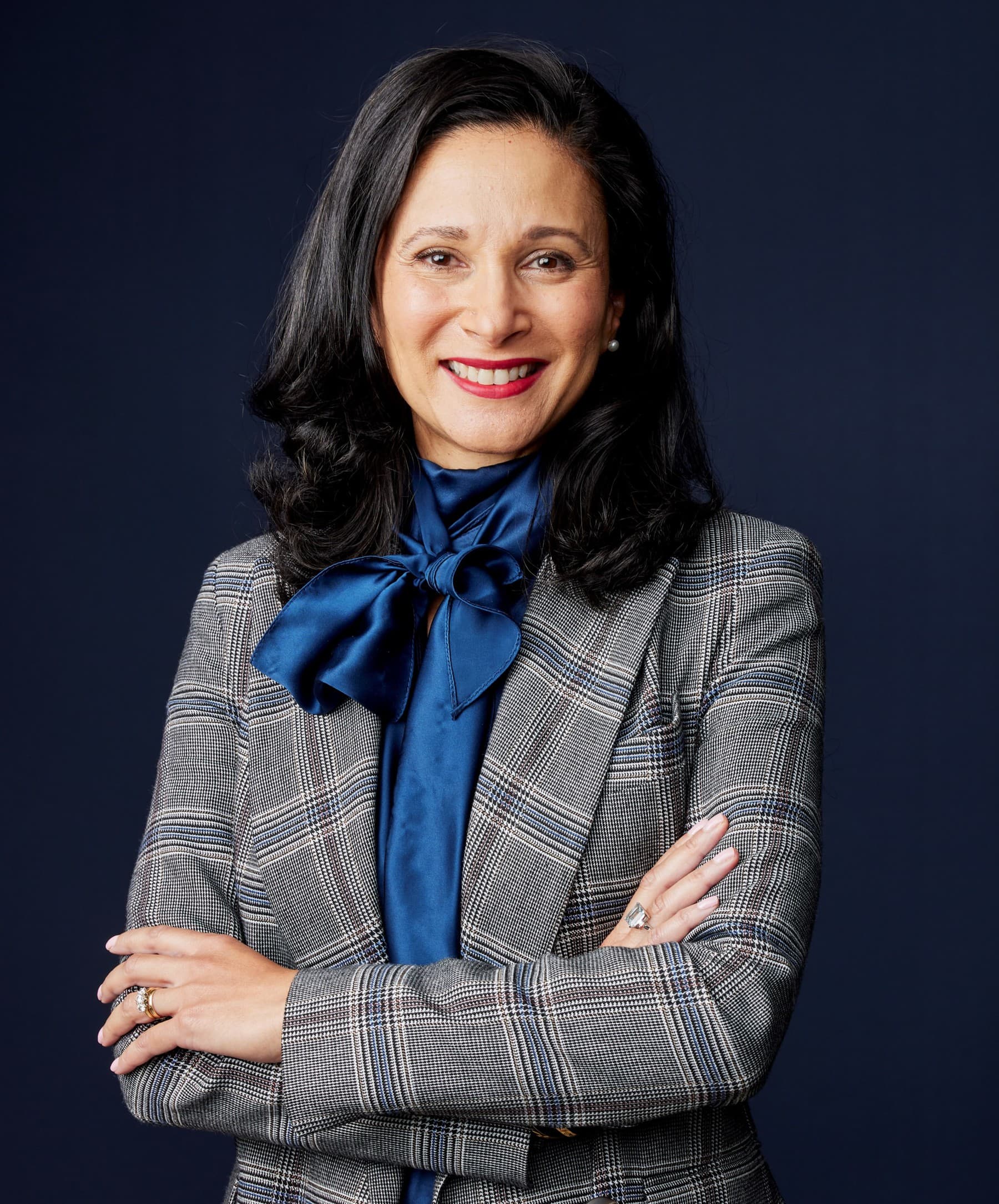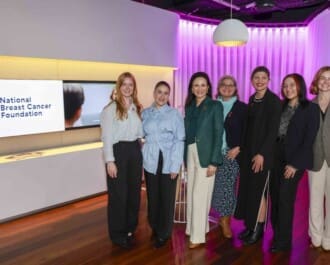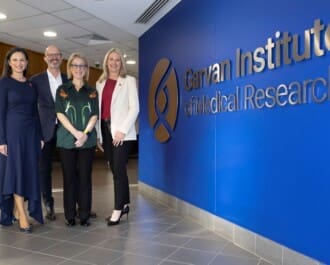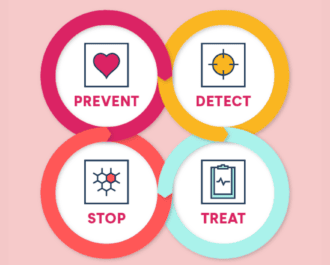
The new NBCF CEO Dr Cleola Anderiesz talks about this year’s groundbreaking research projects and how they will help in our vision for Zero Deaths from breast cancer. Cleola has over 22 years’ experience in health across the research, not-for-profit and government public sectors. She also holds a PhD in Medicine and a Senior Executive MBA.

NBCF CEO Dr Cleola Anderiesz
What research will the National Breast Cancer Foundation (NBCF) be investing in this year?
NBCF awarded $12.4 million to 20 research projects to help meet our Zero Deaths from breast cancer vision. These world class research projects will help reduce the more than 3,100 deaths a year Australia currently sees from the disease.
What are some of the research areas the grants will cover and what potential impact will they have in reducing the burden of breast cancer?
The projects that we are funding cover prevention, early detection, treatment, and quality of life:
- Prevention: finding the new causes of hereditary breast cancer
- Developing a new blood-based test to detect breast cancer, and identify recurrence earlier,
- A project to develop an understanding of how Artificial Intelligence (AI) can be incorporated into breast cancer screening, and:
- Several projects focused on developing and accelerating new or repurposed therapies for breast cancer.
How do you determine who to award the research grants to?
The research projects we fund are determined through a world-class peer review funding process. This involves an independent consumer and scientific peer review process. NBCF ensures that the grant categories address current and relevant needs and priorities in breast cancer research and support our vision of Zero Deaths.
Where does your breast cancer research funding come from?
As a completely community-funded organisation, NBCF’s ability to support game-changing breast cancer research relies solely on Australian donations, and to our supporters, we thank you for your continued contributions which make a tangible impact in breast cancer research.
How will these research grants help continue the Foundation’s work and pursue its vision of Zero Deaths?
This year, 75% of the innovative projects NBCF is funding are dedicated to developing new and improved treatments for those with breast cancer to bring us closer to meeting our vision of Zero Deaths. Improving treatments, including targeting cancers such as triple negative breast cancer, are crucial to improving the survival rates from breast cancer.
What impact has NBCF’s investment in breast cancer research had to date?
NBCF has made incredible achievements in Australian breast cancer research since its inception in 1994. Since 1994, NBCF has invested almost $200M into almost 600 research projects, unlocking a further $650M through partnerships and collaborations. In this time, five-year survival rates for breast cancer in Australia have increased from 76 percent to 91.5 percent. This equates to nearly 50,000 women and men who have survived to their five-year milestone thanks to funding from the generous Australian community.
Being the new CEO, this is your first Grants announcement on behalf of NBCF. What in particular about the 2022 recipients is making you excited?
They are all amazing in their own right and nearly 75% of this year’s recipients are dedicated to research around new and improved technologies. However, at the early detection end of the research continuum, one of the research projects that comes to mind is the use of artificial intelligence in breast cancer screening. This study will investigate whether artificial intelligence could be best used as a second reader for radiologists, as a tool for pre-screening before a radiologist’s viewing, or as a tool to help prioritise suspicious cases. Overall, this study will help answer hard questions about how artificial intelligence can be best deployed in breast screening programs towards achieving optimal screening outcomes for Australian women.
Another project we are all excited about is focused on CAR T cell therapy, a specialised form of immunotherapy that has shown great success in treating some blood cancers. However, this success rate has not been replicated in solid tumours like breast cancer. This research aims to re-engineer immune cells, T cells, outside of the body and in ‘a dish’ with the ability to recognise and hunt down breast cancer cells while persisting long enough in the tumour to destroy them. This work will advance the knowledge and technology needed to advance these revolutionary therapies to clinical trials for breast cancer.
More News Articles
View all News


